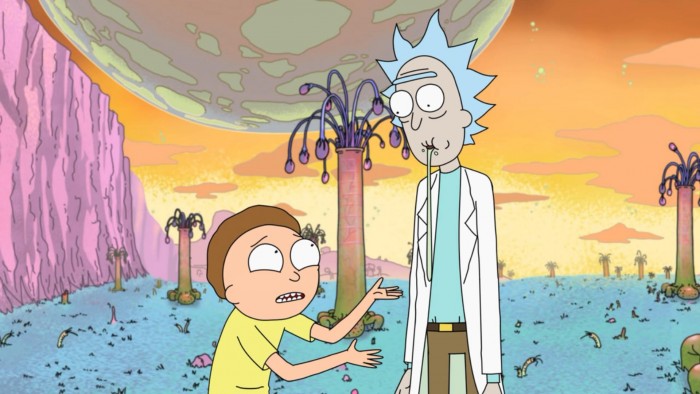(Warning: Spoilers)
October saw the bittersweet conclusion of Rick and Morty’s stellar second season. Like always, it was funny in a way that only shows like Rick and Morty can be. After all, the show’s madcap and absurd delivery is what brought most of its audience to the table in the first place; however, this time it wasn’t all laughs. Faced with an impossible choice between subjecting his family to a life on the run and turning himself in to the bureaucratic Galactic Federation, Rick chooses to sacrifice himself so his family can lead a normal life. It was not just a little bit sad, but sad in a way that makes it feel strange to care so much about the fate of fictional cartoon characters.
Perhaps this should have been expected. Rick’s sacrifice for his family feels at once surprising and entirely necessary for the arc of the show. Rick and Morty has always reached beyond the typical limits of what comedy can be, and this isn’t its first depressing moment. Season two seemed to be one traumatizing moment after another for its characters, from Beth and Jerry’s crumbling marriage to Morty’s loss of innocence. Still, Rick’s sacrifice was the show’s most tear-jerking moment by far. Even in a show as smart as Rick and Morty, it is jarring to see the humanity of such a potent anti-hero laid so bare, especially in a cartoon and especially in what’s supposed to be a comedy.
Though Rick and Morty is probably the best comedy on television, it’s not the only one in recent years that has pushed boundaries. Netflix’s Bojack Horseman is just coming off its own critically acclaimed, hilariously absurd, and emotionally-charged second season. In many ways, Bojack Horseman is Rick and Morty’s spiritual cousin—a kindred spirit in a landscape of increasingly mediocre network comedies. In Rick and Bojack, both shows share cynical, hard-drinking protagonists with questionable morals. Bojack’s roommate and best friend Todd is his morally simplistic, naive sidekick. In other words, he’s the show’s Morty. Both shows also display a playful approach to physical comedy and world building, with Rick and Morty’s alien landscapes and Bojack Horseman’s anthropomorphized animals providing equally immersive universes.
Most importantly, both shows feature incredibly bleak outlooks on the world—or the universe in Rick and Morty’s case—and their protagonists. The central characters of both shows struggle to connect to others and are terribly lonely as a result, hating the world around them, but not nearly as much as they hate themselves. In addition, neither show allows its protagonist a happy ending. Bojack ends season two on a cliffhanger after losing the girl of his dreams seemingly forever, and Rick winds up locked up in a maximum security prison in space. As of yet, there are no heartwarming conclusions, and both shows are unflinching in their portrayal of dark, nihilistic realities in concert with their trademark absurdist humour.
When faced with these facts, viewers must wonder why such depressing shows are so critically successful. This phenomenon is certainly not limited to animated comedies: Superhero movies follow the same trajectory. For example, compare the lighthearted nature of Adam West’s Batman to the cold, psychologically damaged Batman portrayed by Christian Bale. Perhaps mass culture has increasingly turned cynical as a reaction to increasing mass disillusionment and cynicism in the past decade. Technology has increased the availability of information but it has also deeply perplexed us. Western media constantly presents complicated issues in an oversimplified and politically partisan way, making it impossible to understand the issues. Perhaps the appeal of shows like Rick and Morty and Bojack Horseman is because they demonstrate the problems of modern life in a clear, satirical way without being so naive to think that there are answers that can be summed up in neat 30 minute blocks. Maybe the real message of shows like these is that only way to confront the void is to laugh at it. Instead of finding meaning in the world around us, shows like these suggest that the only way to save ourselves is to find meaning in our relationships with the people we care about. Or maybe not. Whatever happens, bring on season three.








